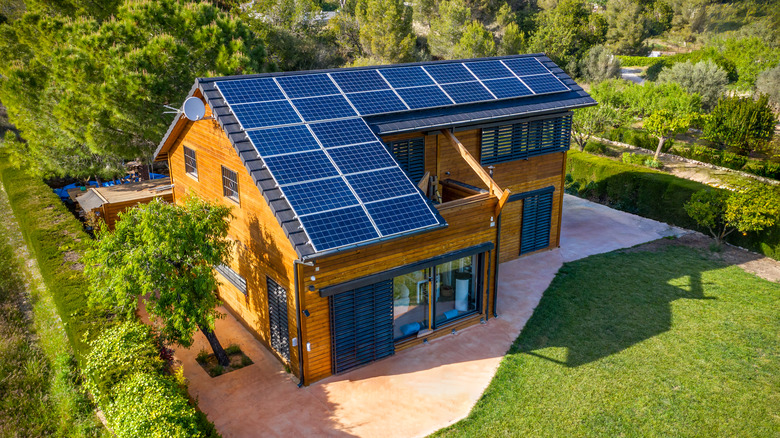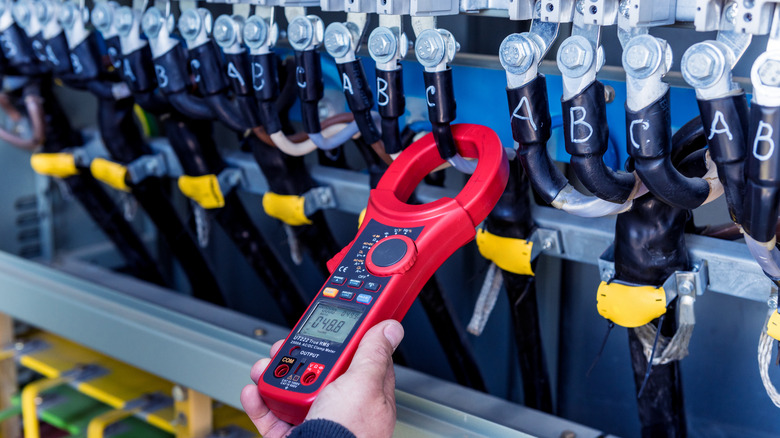What's The Failure Rate Of Panasonic Solar Panels? Here's What We Know
When you think of Panasonic, solar panels might not immediately come to mind. However, the Japanese electronics company has had a footing in the renewable energy market for quite a while. We even named the Panasonic EverVolt 2.0 one of the best 2023 Tesla Powerwall alternatives. However, despite their environmental benefits and potential to save you money on your electric bill, all solar panels come with risks, including the chance that they stop working due to climate or other factors.
Panasonic has a reputation for an extremely low solar panel failure rate. The company has been in the market since it began mass production of the Panasonic HIT Photovoltaic solar panels, which boasted an amazingly low failure rate of 0.01% after their release in 1997. However, Panasonic ended its HIT model production in 2016 as it began unveiling the new EverVolt line. Unfortunately, the company isn't as transparent as it once was about the failure rate of these newer models, and it's nearly impossible to find the failure rate for Panasonic EverVolt panels today, even after an internet deep dive. But you can find another, almost equally important stat online: degradation rate.
Panasonic solar panels have a relatively low degradation rate
In addition to considering which type of consumer solar panel is right for you, you'll also want to check out the product's degradation rate before installation. This is a measure of how long it will take for a solar panel to break down. Failure rate, on the other hand, focuses more on a product's reliability, quantifying the proportion of time solar panels fail to accomplish their task.
The EverVolt HK 2 Black Series Solar Modules, the EverVolt HK Black Series, the K Black Series, and the EverVolt H Series Solar Module all have a 0.25% annual degradation rate. Notably, the PK Black Series of solar panels from Panasonic loses 0.5% of its power yearly. Still, that's pretty good, considering most panels from other brands have annual degradation rates between 0.7% and 0.8%.
All solar panels will lose some power over time due to the natural degradation of being outdoors and baking in the sun. However, Panasonic does have relatively low rates of degradation. Over 25 years, for example, the EverVolt HK Black Series and other models with 0.25% degradation will still retain 92% of their power. Even the PK Black Series, with double the degradation rate, will retain 80% of its power after a quarter-century. Regardless, keep in mind that there are plenty of things you can do to keep your solar panels clean and working their best even decades after installation.

